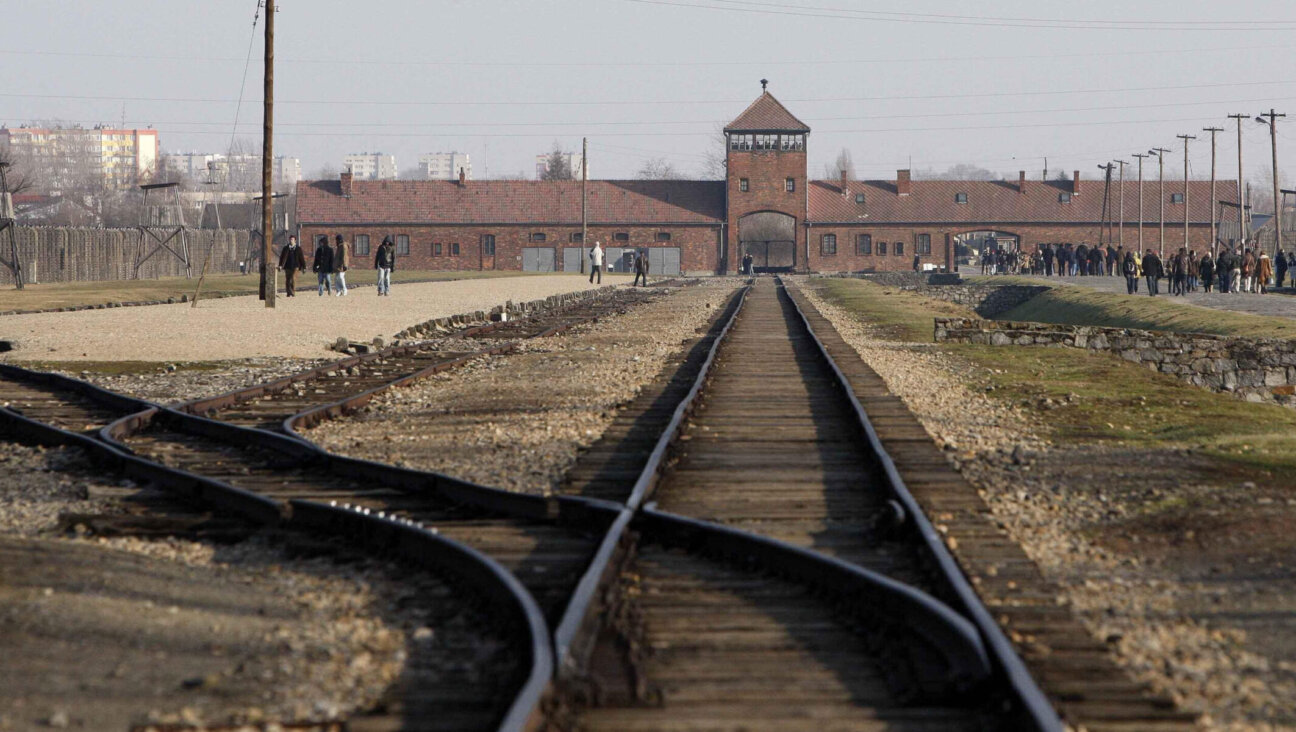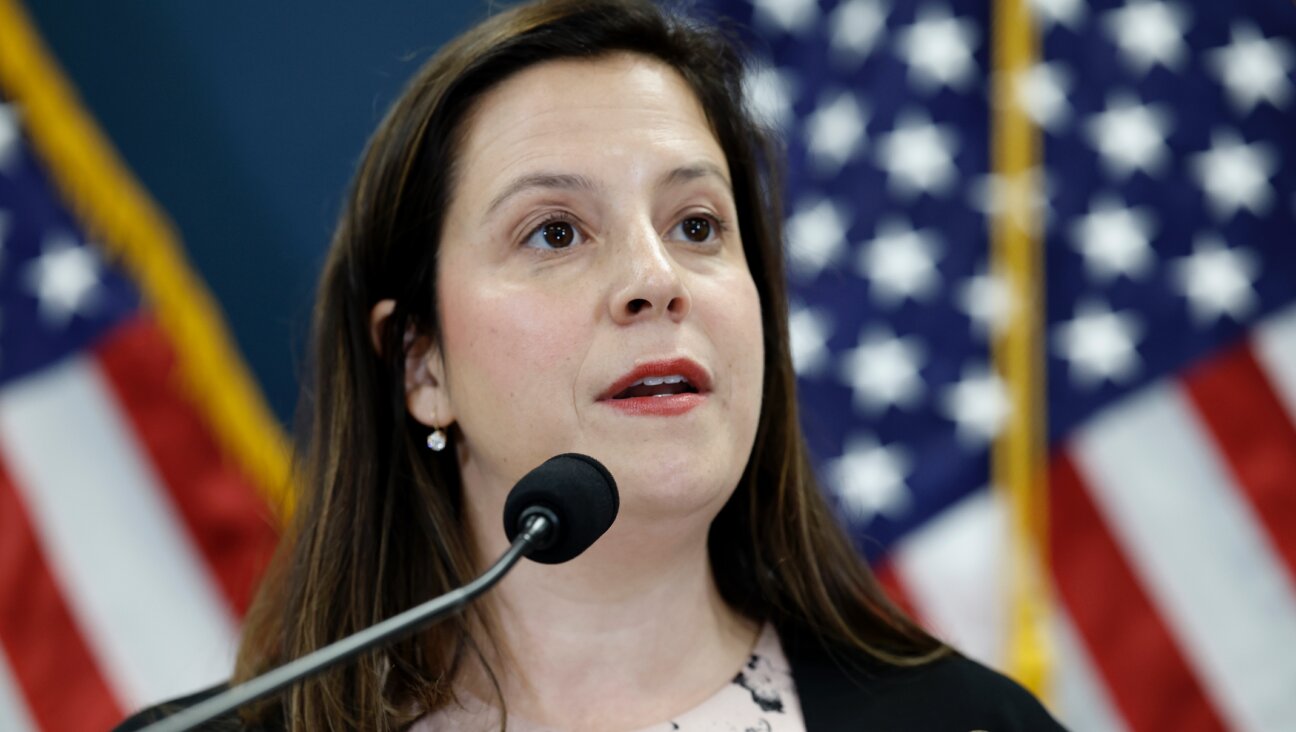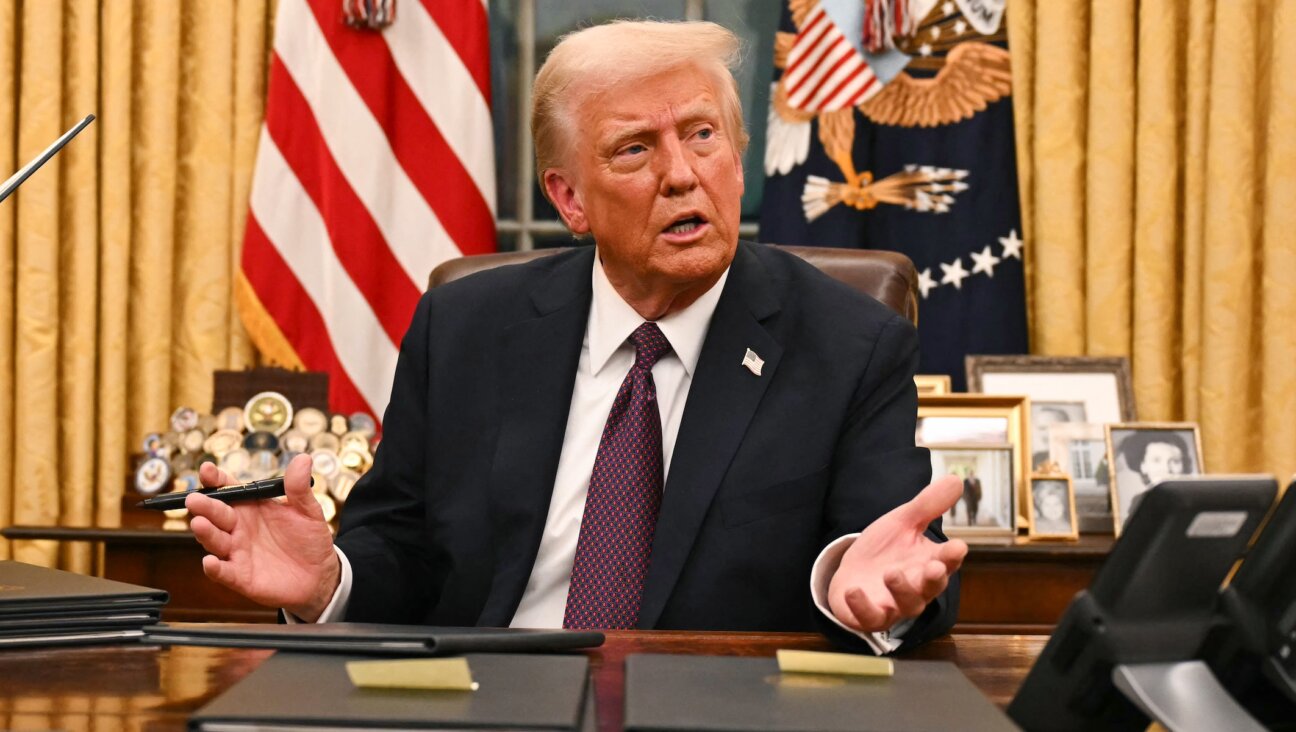Netanyahu Urges U.S. To Demand Iran Change Genocidal Anti-Israel Policy
Israeli Prime Minister Benjamin Netanyahu on Sunday urged the United States and other world powers to demand that Iran change what he called its “genocidal” anti-Israel policy as part of negotiations with Tehran on a final nuclear deal.
Cautioning the international community to “beware” of Iran’s intentions, Netanyahu underscored his deep skepticism over an interim deal reached with Iran last month in Geneva and insisted that any long-term accord must bring about the “termination of Iran’s military nuclear capability.”
Netanyahu, speaking via satellite link from Jerusalem, warned a foreign policy forum in Washington: “The jury is still out. Iran is perilously close to crossing the nuclear threshold.”
He spoke a day after U.S. President Barack Obama, addressing the same forum, defended diplomacy with Iran but sought to reassure Israelis with a pledge to step up sanctions or prepare for a potential military strike if Tehran fails to abide by the pact.
Netanyahu, who had denounced the Nov. 24 six-month interim deal as a “historic mistake,” avoided direct criticism of Obama’s engagement with Iran – just as he did during a visit to Israel by U.S. Secretary of State John Kerry last week.
But the hawkish Israeli prime minister added a new twist to his pressure campaign, aimed a ensuring that world powers seek maximum concessions from Iran in the next round of negotiations.
“This is a regime committed to our destruction and I believe there must be an unequivocal demand to change its genocidal policy,” Netanyahu told a largely pro-Israel audience. “That is the minimal thing that the international community must do when it is negotiating with Iran.”
Netanyahu accused Iran of supplying thousands of rockets to anti-Israel Islamist groups he called Tehran’s “terrorist proxies,” including Hezbollah, Hamas and Islamic Jihad.
He cited a recent comment by Iranian Supreme Leader Ayatollah Ali Khamenei calling Israel the “rabid dog” of the Middle East.
However, Iran’s new president, Hassan Rouhani, a relative moderate, has steered clear of the Holocaust-denial rhetoric of his predecessor, Mahmoud Ahmadinejad, in reaching out to the West. Rouhani has denied that Iran seeks a nuclear bomb, despite Israeli and Western suspicions to the contrary.
STRAINED RELATIONS
Relations between Israel and the United States, traditionally the closest of allies, have been strained by the preliminary agreement, which was designed to halt advances in Iran’s nuclear program and buy time for further negotiations.
Speaking at the Brookings Institution’s annual Saban Forum on the Middle East, Netanyahu insisted that the U.S.-Israeli relationship is an “indispensable alliance,” but he also made clear that differences with Obama remain over Iran.
He said a diplomatic solution was preferable but that a credible military threat and tough sanctions were necessary for diplomacy to succeed.
Netanyahu said steps must be taken to prevent further erosion of existing sanctions and suggested that imposing further sanctions during the talks might lead to a “better deal.”
There is concern within the Obama administration that Netanyahu’s vocal criticism of the Geneva deal could add impetus to calls by pro-Israel U.S. lawmakers for new sanctions.
U.S. officials have appealed to Congress not to push for new punitive measures during negotiations, saying it could alienate both Iran and other countries involved in the talks by making Washington appear to be acting in bad faith.
Still, Israel’s fierce opposition to the Geneva deal has raised speculation – fueled by regular public hints from Netanyahu – that it might carry out long-threatened unilateral strikes against Iran.
In his remarks, Netanyahu reiterated his vow that Israel must have the ability to “defend itself by itself,” but he issued no direct threats.
While Israel is widely assumed to have the region’s only nuclear arsenal, many independent analysts believe it lacks the conventional clout to deliver lasting damage to the distant, dispersed and well-defended Iranian facilities.
The Israelis are also unlikely to go it alone as their most important foreign partner is engaged in diplomacy with Tehran.
A message from our Publisher & CEO Rachel Fishman Feddersen

I hope you appreciated this article. Before you go, I’d like to ask you to please support the Forward’s award-winning, nonprofit journalism so that we can be prepared for whatever news 2025 brings.
At a time when other newsrooms are closing or cutting back, the Forward has removed its paywall and invested additional resources to report on the ground from Israel and around the U.S. on the impact of the war, rising antisemitism and polarized discourse.
Readers like you make it all possible. Support our work by becoming a Forward Member and connect with our journalism and your community.
— Rachel Fishman Feddersen, Publisher and CEO





















